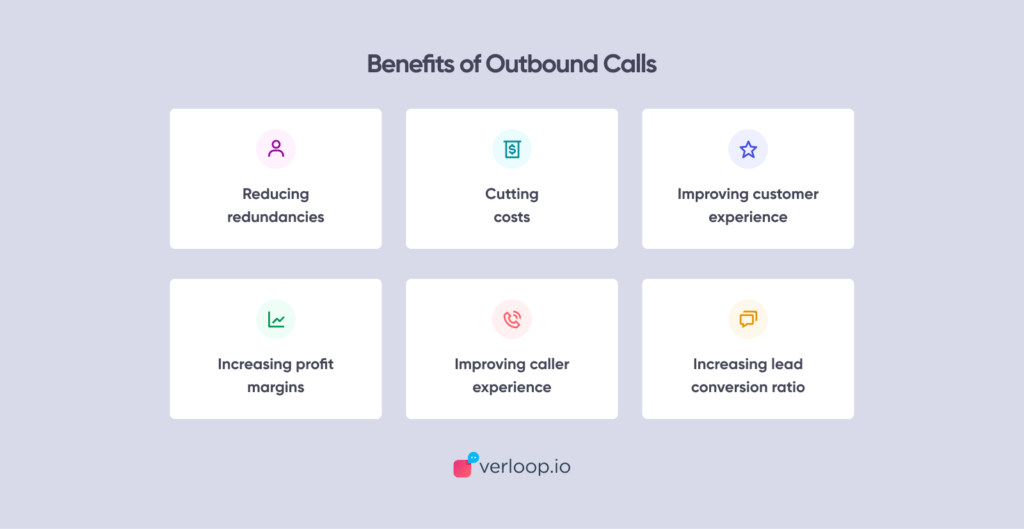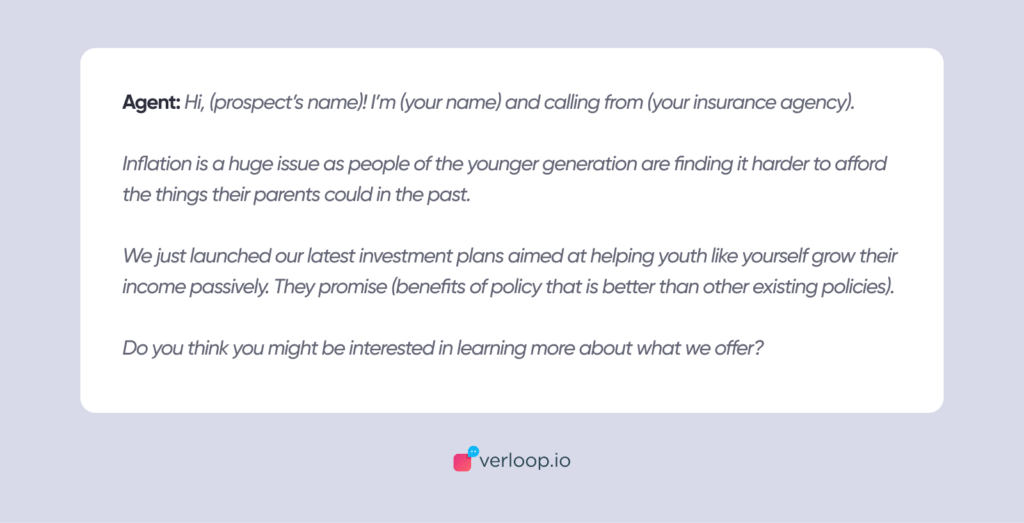Automating Outbound Calls: The Secret behind Optimising Every Call

Automating Outbound Calls: The Secret behind Optimising Every Call
This blog will cover everything you need to know about outbound call automation so you can immediately reap the benefits of this powerful tool!
Automated outbound calls predominantly contain a pre-recorded voice message that greets the customer and sends an important message. Such a call can be taken forward only after further action is initiated by the customer. This action seems simple and straightforward in nature. However, these calls have been a boon to businesses in streamlining many operations. It’s not just about making fewer calls; it’s also about ensuring one has the correct information at the right time and meeting customer expectations accordingly.
Businesses that automate outbound calling register more tremendous success with every call.
Below, we dive deep into how outbound call automation has become a must for business growth.
Table of Contents
- What are outbound calls?
- Reasons why your business needs automated outbound calls
- Types and practical use cases of outbound calls
- Strategies to optimise automated outbound calling
What are outbound calls?
Outbound calls are made when a business initiates a call with a user, prospect, or customer. Furthermore, they have a specific goal: delivering information related to a product or service, capturing customer feedback, collecting donations or raising funds, and more.
Regardless of the nature of the call, making an outbound call can drain resources as agents must identify the phone number, dial it, and wait for the call to connect. Even if the call does not connect, they have to report the reason for it. This entire cycle changes with automated outbound calls. Here, you have an autodialer that makes the call and even engages the customer preliminarily, after which it is handed over to an agent.
Reasons why your business needs automated outbound calls
From the above definition, it is evident that automated outbound calls conserve human resources that can be put to better use. The advantages of outbound calls make a compelling case for why businesses should invest in outbound calling solutions. We’ve listed them as follows:
- Better caller experience
- Greater operational efficiency
- A higher lead conversion ratio
- Improved employee productivity
- Targeted and data-driven marketing
- Cost efficiency while maintaining scalability
- Easy set-up and activation for quicker time-to-market
With such compelling benefits, it is evident that it puts businesses on the fast track to growth and profitability by making calls a pleasant experience for customers and employees alike.
Suggested Reading: Why Voice-Based Customer Support is the Future?
Types and practical use cases of outbound calls
As stated already, different outbound calls serve different purposes. They can fetch tangible results to push businesses of all shapes and sizes to make automated outbound calling a reality. Accordingly, they can be broadly classified into the following categories according to how they’re incorporated into an immaculate business strategy.
i. Improving sales effectiveness
Automated outbound cCalls ensure that a company’s resources are optimised efficiently. Since Sales is primarily a trial and error process, automated outbound calls can help by measuring the nitty-gritty that gets missed otherwise and help agents reach out to the customer correctly. Some of the use cases of automated outbound calls in Sales team include:
- Cold calling: This outbound call is a notorious one that is also the trickiest to manage. It requires hopping on a call with a prospect who has never interacted with your business. It is one of the oldest forms of business outreach, especially in the B2B sector.
- Follow-Up: Follow-up calls are a result of an action. The outbound call often comes right after a direct marketing campaign where the prospect was introduced to the business through direct mail like email, newsletter, brochures, etc. or a cold call.
- Data entry: Outbound calls can simplify and fasten the hectic data entry process. The information about who has previously called you, who has previously missed a call from you, and other follow-ups, etc., can be an added bonus.
ii. Enhancing marketing endeavours
Automated outbound calls can help businesses curate the best marketing strategies by supplementing them correctly. It can also help in targeting the right demography to multiply numbers and maintain a high success rate. Here’s how!
- Market research: These outbound calls help businesses discover target audiences and understand the market gaps and demands they can fill. It is also used to get feedback on different products and services.
- Improving brand awareness: Automated outbound calls can help optimise marketing strategies by reaching the right customers and presenting the brand in a refined way.
- Lead generation: Lead generation outbound calls are a more refined form of follow-up calls where you only pursue those customers who have shown an active interest in purchasing from you. They might have displayed their interest by visiting your website, opening your mail, or following you on social media.
- Telemarketing: Telemarketing calls involve a one-to-one interaction wherein a business tries to market a product or a service over the phone. In addition to targeting new prospects, it is also used for resales, upselling, and cross-selling.
iii. Upgrading Customer Support
While customer support is primarily viewed in its inbound calling form, it can also benefit from outbound calling. It is particularly useful in extending customer support and self-servicing options during the onboarding and activation stages of the customer lifecycle.
- Quick actions: Rather than waiting for agents to get in line with the customers, users can skip past being on hold and directly get answers to their relevant queries through automated outbound calls upon reaching out to the support team regarding their queries.
- Reminders and updates: If you sell a subscription-based product, or optimise calls for EMIs or loan payment, a courtesy call to existing customers informing them about an upcoming payment or an automatic deduction helps keep them in the loop. The same applies to outbound calls offering any updates on the product or service.
- Feedback collection: Feedback becomes a primary scope for observing customer experience. However, customers may not be willing to engage with traditional methods to collect feedback. Automated outbound calls can take over to understand a customer’s standing features and products.
From the above, it is evident that most outbound calls are routine in nature and do not necessarily require a human agent to orchestrate the entire interaction from scratch. Some can be handled through basic autodialers, while others require more nuanced technology like voice bots with handover points wherever necessary.
Either way, the resulting automated phone calls for businesses attract a bouquet of benefits by

Strategies to optimise automated outbound calling
Now that we have dived into the nitty-gritty of automated outbound calls, let’s look at how they can be implemented seamlessly into the business value chain.
1. Outbound autodialer
Outbound autodialers make outgoing calls easier by dialling numbers and screening out numbers that are busy, disconnected, or redirected straight to voicemail. Such an outbound calling solution saves your agents’ time as they only have to get on call once connected to an individual. As such, call centres can manage high calls without stress.
2. Personalised scripting
Some people perceive outbound calls as irksome. However, here, you can integrate the outbound calling solution with a CRM that offers an overview of the individual’s profile so that agents can genuinely connect with them by crafting a perfect pitch for their tastes.

This can be crucial for follow-up calls and conversing with existing customers regarding a product release or any update based on the information already shared with the customer.
3. DNC lists
Automated voice call services in India (and abroad, too) require adherence to the strict DND (Do Not Disturb) policies enforced by bodies like the TRAI. As such, the automated outbound call tool should ensure that the numbers on the Do Not Call (DNC) registry get screened out before making any call. It is not just a regulatory norm but also respectful of a customer’s decision not to be contacted.
Closing Thoughts
Automated outbound calls can fetch benefits in cost-effectiveness, targeted marketing, improved caller experience, higher lead conversion ratio, better employee productivity, and greater operational efficiency. Such tangible advantages are impactful enough to push businesses and call centres of all shapes and sizes to make automated outbound calling a reality using the right solutions.
Verloop.io’s voice AI technology helps small and large companies automate their outbound calls with the help of voice bots. To save your agent’s time and improve your customer experience, schedule a demo with one of Verloop’s conversational experts!






